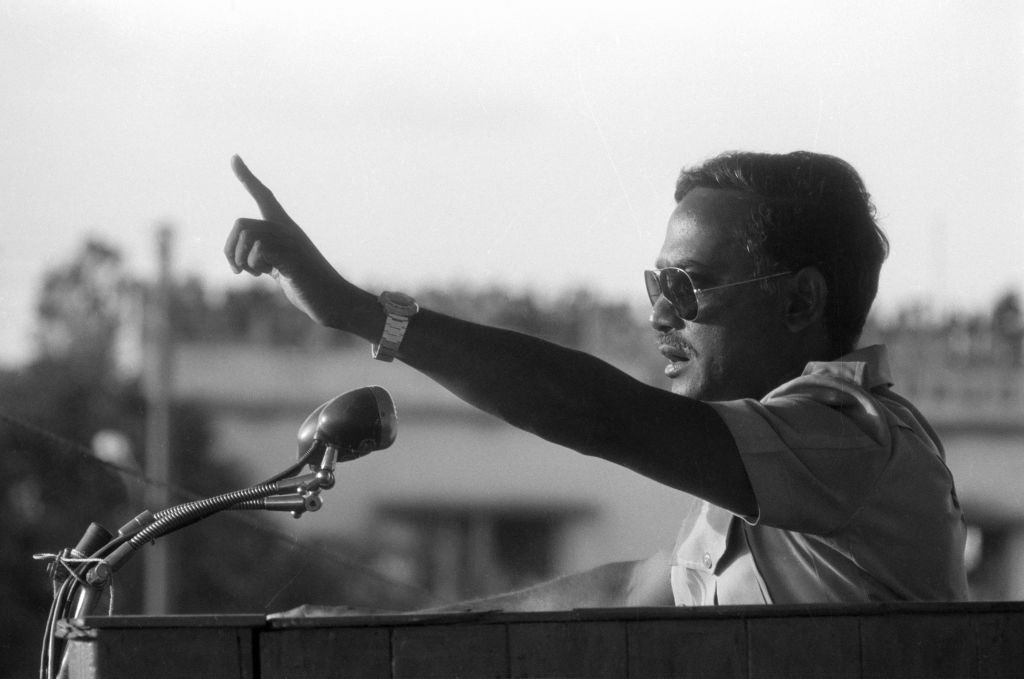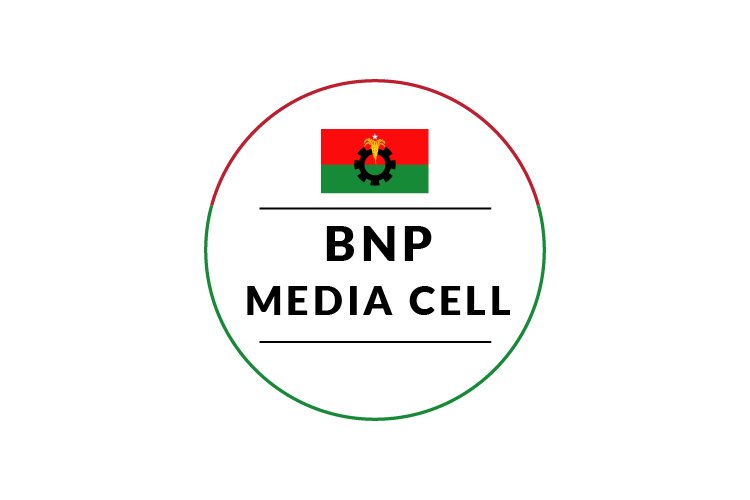When President Ziaur Rahman was killed, he was only 45. But within this short life span, he contributed enormously to Bangladesh. His catalytic role in initiating the mass revolt among Bengali members of the armed forces after the brutal military crackdown of 25th March 1971 and his contribution as a military leader of Bangladesh’s war of independence distinguishes him as one of our top national heroes. Yet it is Zia’s post-independence role in building modern Bangladesh brick-by-brick, revamping every sector, that earned him the accolade of the most consequential leader of post-war Bangladesh! Starting with restoring the ‘chain of command’ in the mutiny-ridden military to restoring Bangladesh’s global image from ‘an international ‘basket case’ to a global leader mediating the Iran-Iraq war or to stepwise initiation of open-market-economy, Zia steered Bangladesh out of near disintegration type situation during the late November of 1975.
Ziaur Rahman’s most lasting legacy is his contribution toward delineating a national identity — ‘Bangladeshi’ — that is inclusive of all races, ethnic groups, and religions. This identity emanates from Zia’s political philosophy of Bangladeshi nationalism, which was embraced very enthusiastically by an overwhelming majority of Bangladeshis. His forward-looking, conciliatory, inclusive, and tolerant modus-operandi of nation-building was expressed in his political philosophy of ‘Bangladeshi Nationalism.’
In a speech during the orientation session of the newly elected BNP members of the 2nd Parliament, Zia explained Bangladeshi nationalism the following way,
“Now the question is, what is nationalism? If we study the history of the world, we will see the rise of different sorts of nationalism at different times and places. In this regard, first comes ‘racial’ or ethnic identity-based nationalism. Arab and German nationalisms are prime examples of this kind of nationalism. German nationalism is based on the Aryan race. Hitler might not have talked about German nationalism if, after World War I, parts of Germany were not occupied and shared by states like Britain, France, and Poland. This act prompted Hitler to promote race-based German nationalism. And we all know of Arab nationalism. … The late president of Egypt, Mr. Jamal Abdul Nasser was able to give a significant shape to Arab nationalism. Arab nationalism still exists and stands tall proudly with all other races in the world. Next comes language-based nationalism. The slogan of Bengali Nationalism is built on this philosophy. And for this reason, Awami League still dreams of establishing Bengali Nationalism. And then Muslim League, IDL, and the Jamaatis talk about religion-based nationalism. At the beginning of this century, Jamal Uddin Afghani preached Pan Islamic nationalism; the spirit of religion-based nationalism originates from that pan-Islamism. To be frank, since the inception of Pakistan, Bangladesh was exploited and ruled in the name of this religion-based nationalism. But the ‘politics of exploitation’ in the name of Islamic Nationalism could not keep Pakistan intact. Independent-sovereign Bangladesh was born. Politics can be based on regional identity also, thus creating a new regional nationalism. In this regard, we can mention the name of the EEC (European Economic Commission). EEC has its own parliament, i.e. the European Parliament. Many EEC countries are not even connected via land, yet they were able to bring forth a new spirit and a new idea of cooperation among themselves. They are collectively trying to give themselves a distinct identity as Europeans. Broadly one can assume that they are moving towards a new nationalistic identity.
War can be the base of nationalism too. But that is not a ‘compulsory’ or essential pre-requisite of nationalism. Bangladeshi nationalism is based on all of the above components of nationalism…. We have ethnic heritage, a rich language, and religious traditions. We all live in a single important geographic location. We have the dream of building a new economic order. And the blood-drenched spirit of our war of independence motivates us all. The presence of so many nationalistic elements is unprecedented in one nation’s identity. When people say that Bangladeshi nationalism is not embracing religion, they are wrong. Religious identity and fidelity to faith is a great and historical trait of the Bangladeshi nation. It has been mentioned in the Holy Quran that ” La Iqra Fidweene”, ‘religion should not be forcefully imposed’. Hence Bangladeshi nationalism is neither religion-based nor religion averse. This nationalism ensures each and every one’s faith and religious rights. And Bangladeshi nationalism is also not a purely language-based nationalism. …The philosophy of Bangladeshi nationalism has ‘absorption power ‘and ‘elbow room.” [Translated into English by the author from original Bangla speech.]
On 25th March 1971, when Bengalis were attacked – Zia responded to his inner call of patriotism to revolt and take up arms against the strategically overwhelming superior force of the Pakistani Army and lead the fight for Bangalee nationalism. But in an independent Bangladesh, he understood the need for an inclusive nationalistic identity for people of erstwhile East Bengal / East Pakistan who are predominantly religious Muslim Bengalis but very tolerant and accommodating to the rights of non-Muslims and or non-Bangalee ethnic groups.
In doing so, Zia incorporated a spirit of tolerance and reconciliation into our national psyche. He successfully united an injured, divided, and lost nation and gave the country hope and a path forward. The most effective tools of his unification process were the changes incorporated into the constitution. He prudently got rid of the ongoing farce in the name of the collaborator’s act and the stalled collaborator trial process. While steadfastly believing in not forgiving and accommodating war criminals, he promoted meritocracy in his nation-building endeavor. There are numerous examples of Zia’s bold steps toward national reconciliation. Consider some of his first administrative acts in running Bangladesh – it took great statesmanship and courage on his part to recruit an Awami League leader and Awami League political appointee Ambassador to the USA, Mr. MR Siddiqui, while also convincing the star Pakistan-era Bengali CSP Shafiul Azam (shunned and ostracized by post-independence Awami League government) to join the same administration in the most vital diplomat and the most vital bureaucrat roles! Against the backdrop of the vindictive Collaborator’s Act, in continuing Mr. MR Siddiqui as the ambassador to America while giving Mr. Shafiul Azam the responsibility to run the administration, Zia sent a not-so-subtle message of renouncing partisan vindictiveness and promoting a spirit of reconciliation!
When Zia took over, thanks to BAKSAL’s ban on all non-state-owned media, the free press was in ruins. Zia took an all-hands-on-the-deck approach to revive a vibrant press inclusive of all sorts of sociopolitical viewpoints. In this regard, a point of note is Zia’s calculated appointments of fiercely independent editors like Abdul Salam, centrist media people like Mr. Tawab Khan, and even Awami men like the former Awami League MP Mr. ABM Musa as leaders of the National Press Institute. Likewise, in academia, while he brings in the likes of Professor Abdul Halim Chowdhury to lead Dhaka university – he actively recruits academics of opposition political ideology like Syed Ali Ahsan or Professor Shamsul Haq into leading positions of his administration.
But Zia’s relentless struggle to reunite the war-injured nation must not be misconstrued as his attempts at decriminalizing the war crime accused or the top collaborators. It must be mentioned that under Zia’s patronage, while most political parties, including Bangladesh Awami League (banned under the one-party dictatorial BAKSAL platform by Sheikh Mujibur Rahman), regained their registration as a political party, Ziaur Rahman administration used legal loopholes in not allowing Jamaat-e-Islami Bangladesh to be re-established in independent Bangladesh. Former Jamaat leaders with cleaner records in 1971 were allowed to float a new, more pragmatic entity called IDL. Jamaat-e-Islami got their registration back later during the Ershad regime when Awami League betrayed a mass pro-democracy movement and joined the election along with Jamaat-e-Islami to legitimize the Ershad regime.
Changes initiated by Zia were not merely a constitutional exercise – he gave this new nation a much-needed coherent identity, which had hitherto remained unclarified in the national mindset during the immediate years after independence. Bangladesh finally got its own identity- an identity of her own and an identity to be proud of! The citizens of this country became Bangladeshis forever. Irrespective of government changes or the Awami League’s return to power, the citizens continue to be identified as Bangladeshis.
Zia led Bangladesh for less than six years – and it’s been 42 years since his death. And 42 years after the death of a 45-year-old Zia, for good or bad, Bangladesh still is Zia’s envisioned Bangladesh. The current regime rules over the cohesion and coalition of 165 million Bangladeshis in sovereign Bangladesh that Zia helped bring into existence! Our passports still say we are Bangladeshis. In practicality, Ziaur Rahman is the father of this ‘Bangladeshi’ nation comprised of Bengalis, Santals, Biharis, Chakmas, etc., who speak dozens of languages and whose religiosity and faith in God get a space in the constitution.


